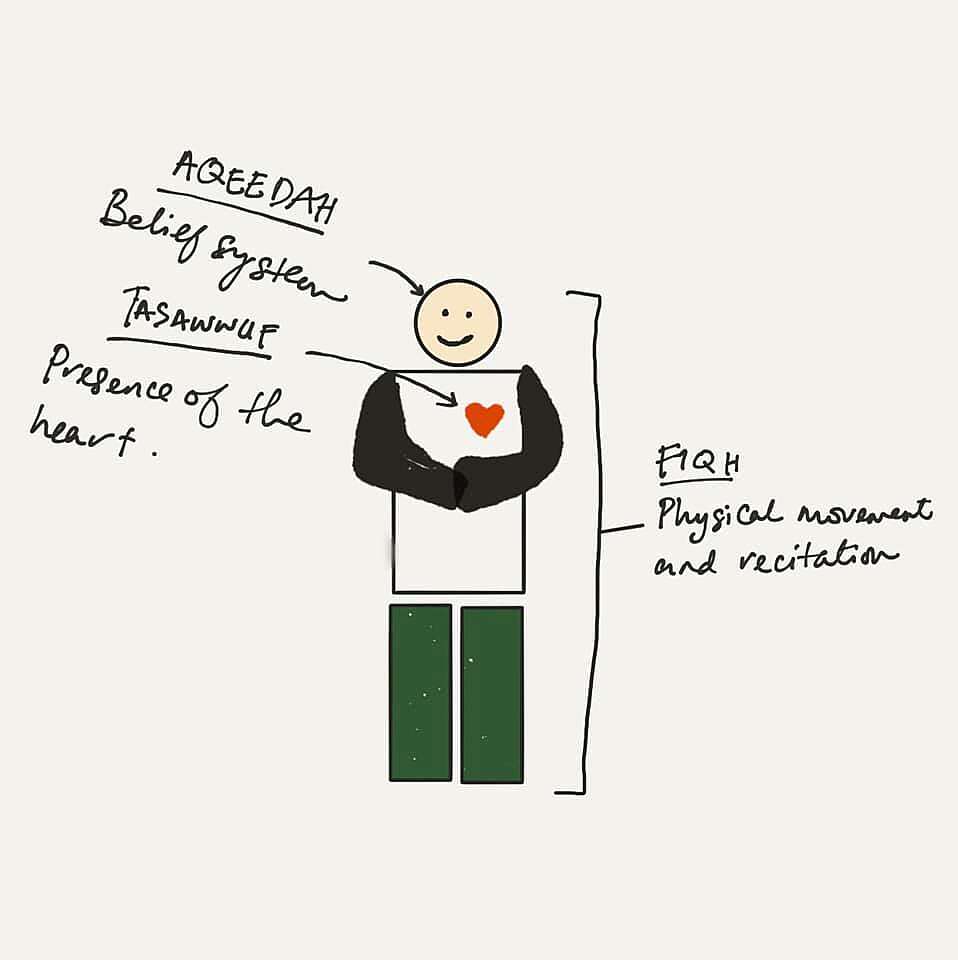A sufi is a title given to someone who has mastered the science of tasawwuf. An expert in fiqh is called a faqih, and an expert in tasawwuf is called a sufi.
Next question is, what is tasawwuf?
Tasawwuf is the science of purification of the soul. Based on hadith Jibreel, the religion of Islam has 3 dimensions; islam which relates the physical actions, like prayers, fasting, zakah, hajj; iman which relates to matters of belief, belief in Allah, angels, scriptures, prophets, day of judgement and divine decree; ihsan which relates to matters of the soul.

The first dimension - islam, develops into a science called Fiqh. The second dimension - iman, develops into Aqeedah, while the third dimension - ihsan, developed into the science of Tasawwuf.
All three dimensions need to exist concurrently to make a person a wholesome Muslim. For example when it comes to prayer, fiqh is mainly concerned with the physical acts; where the hand is placed, how low do we bow in ruku’, what is recited. We can be praying correctly according to fiqh, yet our minds and heart is wondering around the world. We may be doing ruku’ with a perfect 90 degree angle, yet our heart is busy rehashing Season 7 of Games of Thrones to prepare us for Season 8. Taming the heart to pray while our body is praying is the science of tasawwuf.
Tasawwuf is the spiritual dimension of Islam. It’s aim is to purify the heart to reach the state of Ihsan; where a servant worships Allah as if he sees Him, and if he doesn’t see Him, knows that He sees him. It is a science that aims to elevate a person’s faith from ‘ilm (knowledge) to haqiqa (experiential). It is a about purifying the soul from diseases like arrogance (kibr), ostentatious (riya’), envy (hasad), rage (ghadab) and many more, and to beautify it with saving virtues like humility (tawadhu’), detachment (zuhd), reliance on God (tawakkul) and many others.
But isn’t tasawwuf heretical?
One of the great catastrophes befalling the Muslims today is misunderstanding that Tasawwuf/Sufism is only chants, dances and weird speeches, hence not compatible with Muslims today.
Tasawwuf is to Ihsan what Fiqh is to Islam, and Aqidah is to Iman. It is the science of achieving the third pillar of our Deen, Ihsan or the state of Perfection.
In our daily prayers, our belief in Allah and the Day of Judgement motivate us to pray. That is aqidah. Fiqh teaches us how to pray; how to move and what to recite. Tasawwuf teaches us how to discipline our hearts and minds to attain khusyu'. To pray as if we see Allah, and if we can't see Allah, know that Allah sees us.
Tasawwuf is a science to purify our hearts. At the very least we learn the bad traits of our nafs and how to remove them. Then get to know the good characters and how to instil them in our hearts.
Tasawwuf can be divided into two parts; tazkiyyah and azwaq/falsafah. The tasawwuf of tazkiyyah is something that has always been taught in all Islamic learning circles and should continue to be taught. Without the purification of the hearts we will have robots who practice the physical part of Islam without its soul.
The azwaq part of tasawwuf is the part where some may object to it. This is the part where some people experience fana' and baqa' and sometimes utter incoherent speeches. Not everybody needs to thread this path. But just because you disagree with this part of tasawwuf, doesn't me we should abandon the whole science. We have heretical aqeedah teachings like the Mu’tazilah, the Jahmiyyah, the Mujassimah etc. Just because we have heretical aqeedah schools, it doesn’t mean that we say that learning aqeedah is heretical. In fact for most of Islamic history, almost every scholar has studied tasawwuf and many belong to a sufi order (school). Many of the transmitters of the Qiraah of al-Quran, hadith, aqeedah, fiqh and all other sciences are known sufi. Do not throw the baby out with the bath water.
One of the greatest imam of tasawwuf is Imam Junaid al-Baghdadi, and he said that the foundation of tasawwuf is Quran and Sunnah. A person doesn’t have any business in this science if he doesn’t memorise the Quran and study hadith. Sidi Ahmad Zarruq said that a sufi is reliant on a faqih (if he is not already a faqih) but a faqih do not necessarily need to rely on a sufi. Tasawwuf’s aim is to be a Muslim outwardly and inwardly according to the teaching of Prophet Muhammad. One cannot be a sufi or a student of tasawwuf if one leaves out the practices or teachings of fiqh and aqeedah.
Bottom line is, a sufi is someone who emulates the teaching of the Prophet outwardly and inwardly. You cannot be a sufi if you do not practice the physical aspect of Islam, nor can you be one by just doing the outward practice without ridding your hearts from its diseases.
How to identify a sufi?
A sufi doesn’t have a specific uniform. It is not someone who carries a prayer bead, or wears a big turban, or a long jubbah. It is a state of the heart. A sufi is someone who has mastered his soul and submit his nafs in obedience to Allah. Outwardly he will try and live according to the sunnah of the Prophet. The closer one is to the sunnah of the Prophet in his worship, character and demeanour, the ‘sufi-er’ one is.
